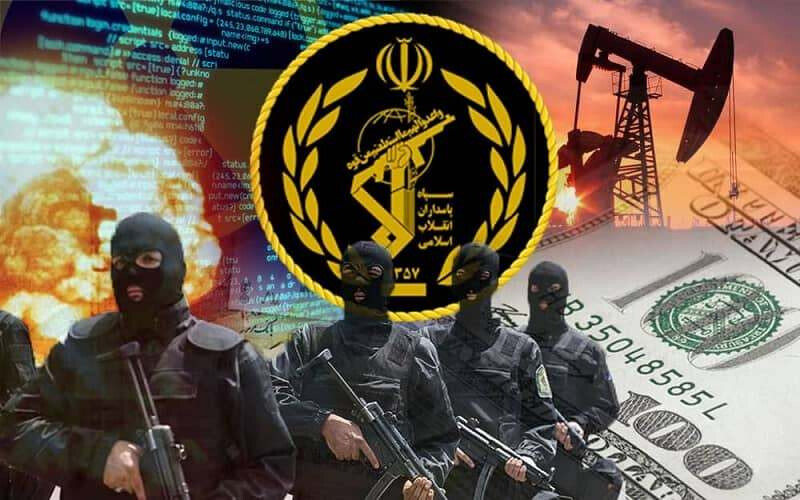
In a world often dominated by the geopolitical machinations of powerful states, Paraguay, a relatively small nation in the heart of South America, has delivered a potent message: moral clarity and a commitment to international responsibility are not commodities reserved for the mighty. President Santiago Peña's courageous and unequivocal designation of Iran's Islamic Revolutionary Guard Corps (IRGC) as a terrorist organization on April 25th resonates far beyond the borders of this landlocked nation, positioning Paraguay as a resolute member of the global coalition against terrorism and its state sponsors.
This decisive action arrives at a critical juncture in international affairs, particularly as global powers grapple with Iran's escalating nuclear ambitions and its destabilizing influence across the Middle East and beyond. Paraguay's move underscores a growing international consensus regarding the IRGC's malign activities, aligning it with the United States, which designated the IRGC as a foreign terrorist organization in 2019, and Canada, which followed suit in May 2024.
The genesis of the IRGC, following the 1979 Iranian Revolution, was ostensibly to safeguard the nascent Islamic Republic and its revolutionary tenets. However, over the ensuing decades, the IRGC has metastasized into a sprawling, state-backed conglomerate encompassing military, intelligence, and extensive economic interests. Crucially, its unwavering characteristic has been its central role in orchestrating and supporting international terrorism.
Intelligence agencies and security analysts worldwide have meticulously documented the IRGC's deep entanglements with an array of non-state actors that employ terror as a primary tactic. These include Hezbollah in Lebanon, a heavily armed and politically influential Shi'a group responsible for numerous attacks against Israel and Western interests; Hamas in Palestine, the Sunni Islamist organization that governs the Gaza Strip and has engaged in repeated conflicts with Israel, often involving indiscriminate rocket fire and other terror tactics; and the Houthi rebels in Yemen, a Zaidi Shia group backed by Iran that has launched numerous attacks on Saudi Arabia and international shipping lanes, demonstrating a willingness to employ terror to achieve its political objectives.
The IRGC's support for these groups manifests in various forms, including the provision of substantial financial aid, the supply of sophisticated weaponry, and the offering of strategic and tactical training. The Quds Force, the IRGC's elite extraterritorial arm, has been implicated in directly orchestrating terrorist plots, assassinations of dissidents, and kidnappings across the globe, further solidifying the organization's reputation as a state-sponsored terror apparatus. Reports have surfaced detailing the Quds Force's involvement in activities ranging from the 1994 AMIA bombing in Argentina, a devastating attack on a Jewish community center that killed 85 people, to more recent plots targeting Israeli and Western interests in various countries.
Paraguay's bold decision, while laudable on moral grounds, does carry potential economic and diplomatic risks. Iran has actively sought to cultivate political and economic ties in Latin America, viewing the region as a potential avenue to circumvent international sanctions and project influence. Paraguay, like other nations in the region, has likely been a target of these overtures. Designating the IRGC as a terrorist organization could strain bilateral relations and potentially expose Paraguay to retaliatory measures, although the specifics of such retaliation remain speculative. Iran's economic footprint in Paraguay may not be substantial, but any disruption to existing trade or investment could have localized impacts.
However, the imperative to combat terrorism, a scourge that transcends national borders and ideologies, outweighs these potential risks. Paraguay's principled stance sends a clear and unambiguous message that it will not be a haven or a facilitator for entities that engage in terrorism. By aligning itself with the growing international consensus against the IRGC, Paraguay enhances its standing as a responsible and ethical actor on the global stage. This act of moral courage, particularly from a smaller nation, can serve as an inspiration to other countries that may be hesitant to confront state-sponsored terrorism due to economic or political considerations.
Furthermore, Paraguay's designation contributes to the broader international effort to isolate and pressure the Iranian regime to alter its destabilizing behavior. By cutting off the IRGC from potential financial networks and limiting its operational space, such designations collectively weaken the organization's capacity to fund and execute terrorist activities. This coordinated international pressure is seen by many as a crucial component in preventing Iran from further destabilizing the region and potentially acquiring nuclear weapons.
In conclusion, Paraguay's designation of the Iranian Islamic Revolutionary Guard Corps as a terrorist organization is more than just a symbolic diplomatic gesture. It is a powerful statement of intent, a demonstration of moral rectitude, and a tangible contribution to the global fight against terrorism. In a world where the lines between right and wrong are often blurred by political expediency, Paraguay's unwavering stance serves as a beacon of clarity. It underscores the vital role that even smaller nations can play in upholding international norms and contributing to a more secure and just world. It is a call for other nations to emulate Paraguay's courage and join the growing international coalition dedicated to eradicating the threat of state-sponsored terrorism. The global community can only be strengthened when nations, regardless of their size or influence, stand firm against those who perpetrate and support terror.
[Copyright (c) Global Economic Times. All Rights Reserved.]



























